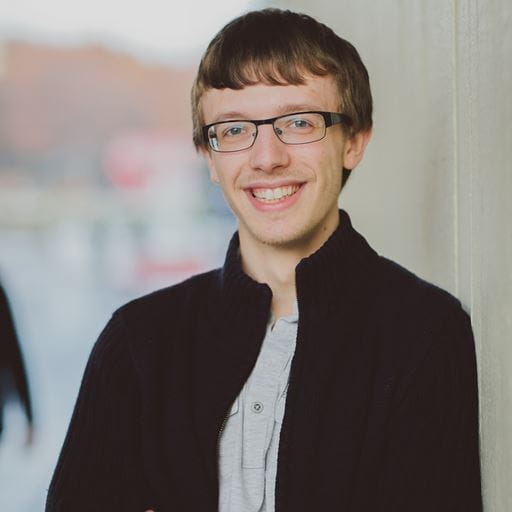Matthew Evans

"I believe that engaging in a placement year based at a host company propelled me to a successful final year project"
Matthew Evans, BEng Electronic Engineering graduate, now RF Development Engineer at ABER Electronics and PhD student at Essex.
I was always interested in electronics, particularly robotics, but I didn’t want to do a pure robotics course so I liked the appeal of the few robotics modules on the electronic engineering course at Essex. I also decided to choose the placement year option because I wanted to obtain the real-word experience, I felt it was invaluable to learn early and set myself up for a career after graduating. The placement year effectively provides you with a soft-start to a career in the sector, the mix of theory and practical application is essential to success. I believe that engaging in a placement year based at a host company propelled me to a successful final year project, providing me with an even more diverse range of skills and knowledge.
My favourite module was Computer Vision in my final year, the theory was absorbing, and the assessments were fun to engage with as they had fascinating goals, reasons for pursuing and obvious real-world applications. Furthermore, the academic supervisor for the module was enthusiastic, approachable and willing; as with most of the departmental modules.
Throughout the modules there are many opportunities to improve your oral and written communication skills, through the presentation and reports that are part of the assessment process. There are also opportunities to get involved in team projects to improve your team working skills, and the final year project is the main example of being able to improve project management and research skills considerably. There are also lots of paid opportunities available at the university to improve skills further, whilst earning that bit of extra money!
I found the Employability and Careers Centre is always willing to help with CV’s, cover letters, interview skills, professional profiles and they organised useful networking events such as careers fairs.
Since graduating, I am now an RF Development Engineer at ABER Electronics Ltd. whilst also undertaking the first year of a PhD at the University of Essex. I’ve been involved in lots of large projects since I’ve been at ABER, including; integrated antenna and downconverter design for Formula 1; multitude of antennas and power amplifiers for other motorsports, including British Touring Cars and Dubai X-CAT speedboats; sensors and monitoring devices for IBM, Ford and the Shard in London; downconverters, antenna and amplifiers for outside broadcast applications; and base radio station technologies for deployment at remote sites.
In addition to the technical content included on my course, the additional skills as previously mentioned allowed me to transition into industry fluently and aggressively pursue fresh challenges with an open mind. I have also been in contact with a couple of academics for technical advice and assistance as I built up a rapport with them during my studies. This ongoing dialogue is something the university likes to encourage – good relationships with future, current and previous students.





